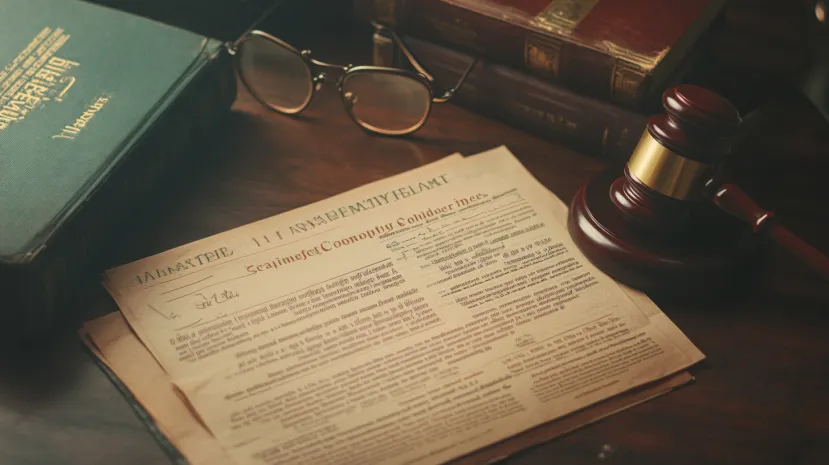Table of Contents
Quality Service Guarantee Or Painting Free

Get a rental agreement with doorstep delivery

Find the BEST deals and get unbelievable DISCOUNTS directly from builders!

5-Star rated painters, premium paints and services at the BEST PRICES!
Loved what you read? Share it with others!


Submit the Form to Unlock the Best Deals Today
Check Your Eligibility Instantly

Experience The NoBrokerHood Difference!
Set up a demo for the entire community

Tenant Super Relax Plan
Enjoy Hassle-Free Renting
 Full RM + FRM support
Full RM + FRM support Instant alerts & premium filters
Instant alerts & premium filters Rent negotiation & relocation help
Rent negotiation & relocation helpWhat are Society Transfer Charges as per the Housing Act and Rules in 2025?
Table of Contents
Society transfer charges are fees that a housing society collects when a property or a flat is transferred from one owner to another. These charges cover administrative expenses during the transfer process. According to the society transfer fees rule in 2025, a cooperative housing society in Maharashtra can charge up to ₹25,000 for the transfer of society. This limit is set under section 29A of the Maharashtra Cooperative Society Act 1960. Additional charges, like an entrance fee of ₹100, are applicable, and share transfer charges may also apply. Understanding the society transfer charges is important for both buyers and sellers so that they can prevent societies from overcharging buyers and ensure a smooth legal property transfer.
Recommended Reading

What is the Difference Between Movable and Immovable Property?
May 1, 2025
56052+ views

Property Sales Agreement in India: Drafting, Stamp Duty & Registration Process 2025
May 1, 2025
25927+ views

Franking Charges Explained: Meaning and Benefits
January 31, 2025
1101609+ views

Transfer of Property Act: Meaning, Types and Laws
January 31, 2025
5333+ views

Fractional Ownership and How It Is Affecting the Commercial Real Estate World
January 31, 2025
5644+ views
Understanding Society Transfer Charges

Society transfer charges are fees collected by the housing society when the ownership of a flat is transferred from one person to another. The major purpose of these charges is to cover the administrative costs and update the record. These charges are regulated under cooperative housing rules to ensure that the transfer of property is fair and smooth within the society. Their applicability is different in different scenarios. Let’s take a look:
- Sale of Property: When a flat is sold, the buyer has to pay the society transfer charges. The society may also charge a transfer premium in a housing society, which is fixed at ₹25,000 in most states. This applies after receiving a non-objection certificate (NOC) from the society.
- Gift Deed Transfer: A society cannot demand a transfer premium when gifting a flat to a family member. Only a nominal transfer fee is allowed. Society transfer fees in case of a gift deed are typically limited to ₹500 as per the cooperative housing guidelines.
- Inheritance: When a flat is inherited through a will or a legal succession, the heir must inform the society and submit legal documents. No transfer premium is charged, but the basic transfer fee is applicable, and the documentation cost might be applicable for updating the society record.
Legal Framework Governing Transfer Charges

The legal rules of society transfer charges are based on the Maharashtra Cooperative Societies Act, 1960, which sets limits and procedures to ensure fair and transparent property transfer. Under this Act, the housing society cannot collect excessive fees during the ownership transfer. Moder By Law No.38 supports this and allows the society to charge a maximum transfer premium of ₹25,000 when a flat is sold, which is collected to cover the basic administrative cost and record update. To enforce this rule, the Maharashtra government issued a circular on August 9, 2001, officially capping a transfer change of ₹25,000. All societies must strictly follow this limit and cannot demand more from people. This ensures that the members are not unfairly burdened during property transfer.
Quality Service Guarantee Or Painting Free

Get a rental agreement with doorstep delivery

Find the BEST deals and get unbelievable DISCOUNTS directly from builders!

5-Star rated painters, premium paints and services at the BEST PRICES!
Maximum Transfer Charges Permitted Under the Law
In most cases, the property owner and buyer who ask the societies association for society share certificate transfer charges to change the buyer's name on the shareholding certificate are left with little alternative but to comply with its requests. However, it is unclear if the law permits a society to demand an unreasonable transfer fee. The resolution is contained in By-law No. 38 of the 2013 By-laws of the Maharashtra Model Society, 1960, which the Maharashtra government released via a circular dated August 9, 2001.
It is clearly stated in the aforementioned by-law No. 38 and the circular dated August 9, 2001, that the premium transfer fee in housing society cannot exceed Rs 25,000.
Many societies frequently require the property owner/purchaser to make the requested payment through a "voluntary donation" to avoid violating the cap on transfer costs noted earlier.
However, Bye Law No. 38 goes one step further to ensure that no excess donation or gift to any other funds or under any other pretext shall be reclaimed from the transferor or transferee.
Transfer Premium in Housing Society: What You Need to Know
A transfer premium in a housing society is a one-time fee paid by the new buyer to the housing society when the flat is sold. It is charged for the administrative cost and record update. As per the Maharashtra Cooperative Societies Act and Model Bye Laws, this premium is capped at ₹25,000. In a gift or inheritance case, societies cannot charge or demand more. This rule ensures fairness and makes sure people are not charged extra. Below are the differences between a transfer fee and a transfer premium:
| Information | Transfer Fee | Transfer Premium |
| Purpose | Administrative processing | Record update and society fund contribution |
| Charged in | Sale, inheritance and gift | Only in the sale of a flat |
| Legal Limit | ₹500 to ₹1000 (varies) | ₹25,000 (maximum) |
| Applicability in gift | Yes | No |
| Based on By Law | Yes, (Model By Law 38) | Yes, (Model By Law 38) |
Society Transfer Fees in Case of Gift Deed

When a property is transferred as a gift deed, the rules for the society transfer fees are much simpler than those of a regular sale. Housing societies are not allowed to charge a transfer premium in such cases. As per the model By-laws, if the gift is made to a close family member like a spouse, children, parents or siblings, then only a nominal transfer fee of (₹500 to ₹1000) is applicable. This makes sure that the family can easily transfer their property without a financial burden. Societies are strictly guided to follow this rule and not overcharge or demand extra money from the people.
Society NOC Charges for Resale Flat

A No Objection Certificate (NOC) from a housing company is important in a resale flat transaction. This document claims that society has no objection to the transfer of ownership, and the seller has cleared all the dues. This NOC is beneficial when you need loans from a bank. Societies just charge a nominal fee of ₹500 to ₹5000( depending on their by-laws) for issuing the NOC. The societies cannot delay or deny the NOC without any valid reasons. It ensures transparency, protects the buyer's interest, and helps to complete the resale process smoothly.
Who Pays Society Transfer Charges: Buyer or Seller?
The buyer generally pays the society transfer charges, as they are the new members joining the housing society. However, the payment terms can be mutual, which is decided by the buyer and the seller during the sale agreement. Legally, a housing society cannot interfere in who pays; it is a private agreement between the buyer and the seller.
Society Charges for Sale of Flat: Comprehensive Breakdown

When the house is sold, the housing society may apply several transfer, documentation, and membership charges. It is all governed by cooperative housing rules to ensure fairness and transparency. The table below will help you understand the charges in a better way:
| Charge Type | Description |
| Transfer Fee | It is a one-time fee for processing the ownership charges (up to ₹25,000) |
| Share Certificate Transfer Fee | It is a fee for updating and issuing the share certificate (₹100 to ₹500) |
| Admission Fee | Entry fee for the new member (₹100) |
| NOC Charges | Fee for obtaining No Objection Certificate (₹500 to ₹5000) |
| Document Verification Charges | To verify the documents, some societies may change (₹100 to ₹1000) |
| Stamp Duty | Generally an amount of (₹25 to ₹100) is applicable |
Legal Rulings Relating to the Transfer Costs
The legality of paying transfer fees of society has recently been put to the test by the courts on multiple occasions. For example, in the matter of Bhartiya Bhavan Cooperative Housing Society Limited and the others vs Krishna H Bajaj and Others, the Bombay High Court upheld the society's appeal (Writ Petition No. 1094 of 2004, decided on February 17, 2010), disqualifying the flat buyer from receiving a refund of the Rs 9,63,000 voluntary contribution they paid to the society at the time the apartment was sold.
During the appeal hearing before the Bombay High Court, the unit buyer argued that the voluntary contribution was nothing more than the transfer fees of society had asked and that the flat owner was obligated to pay. However, the Bombay High Court noted that the buyer of the unit, in that case, knowing their exact legal status, agreed to pay the society Rs 9,63,000 in transfer fees under the guise of a voluntary donation.
The apartment purchaser complained to the Supreme Court of India against the previous ruling (SLP No 11266 of 2010, the order decided on November 9, 2011). According to the SC, it did not entirely concur with the justifications provided in the previous judgement rendered by the Bombay High Court. However, the SC could not reverse the Bombay High Court's judgement because the flat purchaser had not disputed the society's resolution setting the transfer charge amount. Their challenge came more than two years after the voluntary donation.
Furthermore, the Bombay High Court acknowledged in the Alankar Shakari case that society holds a strong position when a flat buyer demands a seamless transaction and transfer of the share certificate into his name. In these situations, society demands outrageous payments from the apartment buyer under the guise of "voluntary gifts."
The Bombay High Court ruled that society may only raise money by legally acceptable charges or fees and is not permitted to make money from its members. While making gifts to society is not prohibited, it should be done freely and without compulsion. Additionally, society should never collect transfer fees while claiming the money was donated.
Effect of The Bombay High Court's Decision on Transfer Costs on Property Purchasers and Sellers.
The decision of the Bombay High Court in the matter of Alankar Sahkari established the legal framework for any property owner or buyer to challenge the excessive demands of society transfer charges, regardless of whether it is referred to as a voluntary donation.
Whether a property buyer is prepared to start bitter litigation with a community where they want to reside for the foreseeable future remains, even though the legal remedies and the legislation have been fairly decided for transfer premiums in a housing society.
Members should protest against any such resolution being enacted in societies where there are presently no housing society transfer charges rules on paying the transfer charges as voluntary gifts or in any other way because it goes against the spirit of the legislation. Members can only stop such measures if they voice their concerns appropriately.
What are the Requirements or Guidelines for Transferring Flats?
- Before the flat can be transferred to another member, the member must have owned it for an entire year.
- Members who obtain ownership through a court order are exempt from the abovementioned condition.
- Anyone planning to move out of their apartment must provide the society with a written 15-day notice.
- The application must include good cause for the flat transfer (explained succinctly).
- The transfer premium (if applicable), admission price, and transfer fee are all required, along with documentation from both the transferor and the transferee.
What Steps Must be Taken for a Flat Transfer?
It's always advisable to consult a legal professional or real estate expert to guide you through the specific requirements and legalities involved in a flat transfer in your jurisdiction. With that in mind, here are some pointers on the steps that must be taken for a flat transfer
1. Documentation:
Gather all the necessary documents related to the flat transfer, such as the sale agreement, property title deeds, and identification proofs of the buyer and seller.
2. Verification:
Conduct a thorough verification of the property documents to ensure their authenticity and legality. This step helps in preventing any potential legal issues or disputes later on.
3. Agreement Execution:
Prepare the transfer agreement and get it duly executed by both the buyer and seller. The agreement should outline the terms and conditions of the transfer, including the sale price, payment schedule, and any other relevant clauses.
4. No Objection Certificate (NOC):
Obtain a No Objection Certificate from the society or housing society where the flat is located. This certificate verifies that there are no outstanding dues, pending litigation, or objections regarding the transfer.
5. Clearances and Permissions:
Seek necessary clearances and permissions from local authorities, such as the municipal corporation or development authority, if required for the flat transfer.
6. Stamp Duty and Registration:
Pay the applicable stamp duty and get the transfer deed registered with the relevant authority as per the local regulations. This step is crucial for legally transferring the ownership rights of the flat.
7. Financial Settlement:
Ensure that all financial obligations, such as outstanding dues, pending maintenance charges, and property taxes, are settled before the transfer takes place. This step avoids any financial liabilities being transferred to the buyer.
8. Handover and Possession:
Arrange for the physical handover of the flat to the buyer after completing all the legal and financial formalities. The buyer should inspect the flat to ensure its condition aligns with the agreed-upon terms.
Can a Cooperative Housing Society's Board of Directors Be Dismiss?
The deputy district registrar of Maharashtra's Katraj cooperative housing society disbanded its board of directors in 2020. (Pune). To grant a NOC for a flat transfer into a home buyer's name, the board had issued a resolution by the general body imposing a fee of Rs. 1.25 lakhs as society charges.
The Cooperative Societies Act specifies a sum of Rs 25,000 for the property transfer charges, as was already mentioned. The board was disbanded because it had broken society transfer fee rules in its behaviour. The deputy registrar further prohibited the society’s directors from running in elections for the following six years. This emphasises how charging a high transfer cost is unlawful and punitive.
Society transfer charges in Pune are fees that apply to second sales rather than first sales. So, you don't have to pay transfer fees while purchasing from the builder, but you do when you sell.
According to current regulations and notifications, society transfer charges in Mumbai are 2 per cent, which is illegal. A society may only request a transfer fee up to a maximum of Rs.25,000; it may not want more. Request that the society provides the transfer fees in writing before filing a complaint with the registrar of societies about the excessive amount requested by the society.
Is the Builder's Transfer Fees Legal?

Although housing society transfer charges and service societies are permitted to collect transfer fees, a builder is not permitted to do so if it does not violate the rules. You may, however, be aware of some dishonest developers who demand society transfer charges. When a buyer approaches a builder for a NOC and a builder can use their influence to sway the home buyer, most complaints against the developer in such a situation arise. However, for the following reasons, it is unlawful to do this:
- The Transfer of Property Act of 1882 prohibits such behaviour. It states that "a transfer of property passes instantaneously to the transferee, all the interest which the transferor is then capable of passing in the property and the legal occurrences thereof."
- The Indian Contract Act of 1872 is violated since it infringes on a buyer's ownership rights over the property.
- It differs from cooperative transfer charges by society. While the purchaser is a shareholder, a cooperative society owns the structure and the surrounding property. No such rights exist for builders.
- Buyers should investigate whether developers who claim to be collecting the transfer fee on behalf of a cooperative housing society are attempting to prevent the society from being formed in the first place.
- Under Sections 384 and 385 of the Indian Penal Code, a builder who tries to deceive a property buyer and induce them to pay the transfer fee may be held accountable (IPC). The Competition Act of 2007 forbids it as well and defines it as "abuse of dominant position."
- GST on society transfer fees is applicable if the CHS is not otherwise exempt from GST registration. GST is applied to transfer fees at a rate of 18 per cent.
Understand Society Transfer Charges With NoBroker:
The State government has lowered the fee assessed on the society transfer charges and sale of flats in cooperative housing societies located on leased government land in response to lobbying from prominent housing societies owned by serving/retired officials and police officers.
There is no distinction between whether a requirement is for residential or commercial use based on a cursory reading of this provision and the provision relating to the bona fide requirement, which shows that the landlord needs only to demonstrate that the premises are reasonably required and legitimately for himself or his family.
If you need professional help understanding the various property taxes and legalities involved in buying and selling real estate, book a free consultation with experts at NoBroker. If you’re interested, comment below; our executive will contact you soon.
Frequently Asked Questions
Ans: Depending on the city you live in, society transfer charges require payment of a transfer premium when a member sells shares and rights in a flat. This premium can be anywhere from Rs 25,000 to even a percentage of the buying consideration for selling the flat.
Ans: Society transfer charges are typically paid by the property buyer, as part of the costs involved in acquiring rights to the apartment within a cooperative housing society.
Ans: In society transfer fees, in the case of a gift deed, you must give the society Rs. 500 as a transfer "fee." The bye-law is very clear in this regard: If the transfer is within the family (defined by the bye-law as including mother, father, brothers, sisters, sons, daughters, sons-in-law, and daughters-in-law), then society CANNOT demand the transfer "fees/premium," not even as "donation" or under any other pretext.
Ans: Society transfer charges for a resale flat are fees imposed by a cooperative housing society for transferring ownership rights from the seller to the buyer within the society.
Ans: The rules society transfer fees are determined by the cooperative housing society's by-laws and cannot exceed the legal cap set by local government regulations.
Ans: Transfer of societies in Maharashtra refers to a legal process of changing the ownership of the flat in a cooperative housing society. It includes updating the record of the society, transferring the share certificate and paying the applicable charges. The Maharashtra Cooperative Societies Act, 1960, governs this process.
Loved what you read? Share it with others!
Most Viewed Articles

Franking Charges Explained: Meaning and Benefits
January 31, 2025
1101609+ views

BBMP E-Khata Registration process for property owners in Bangalore, Karnataka in 2025
March 19, 2025
145603+ views

Supreme Court Verdict on Society Maintenance Charges
January 31, 2025
120298+ views

All You Need to Know about Revenue Stamps
January 31, 2025
89409+ views

Stamp Duty and Registration Charges in Bangalore in 2025
January 23, 2025
86874+ views
Recent blogs in
BBMP to Send 3 Lakh Property Tax Notices for Under-Assessed Properties in Bangalore
June 6, 2025 by Kruthi
Daughter's Right in Fathers' Property - the Law is Finally Equal for both Genders?
June 1, 2025 by Vivek Mishra
EC Online Bangalore: Importance, Documents Required and Application Process in 2025
June 1, 2025 by Kruthi
Rectification Deed Format and Process in India 2025
June 1, 2025 by Vivek Mishra





Join the conversation!